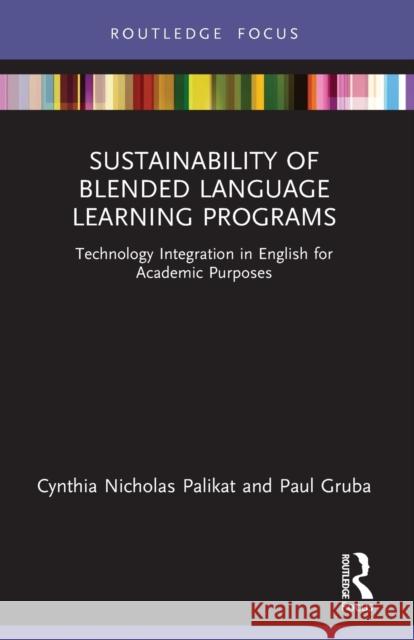Sustainability of Blended Language Learning Programs: Technology Integration in English for Academic Purposes » książka
Sustainability of Blended Language Learning Programs: Technology Integration in English for Academic Purposes
ISBN-13: 9781032115849 / Angielski
Sustainability of Blended Language Learning Programs: Technology Integration in English for Academic Purposes
ISBN-13: 9781032115849 / Angielski
(netto: 97,51 VAT: 5%)
Najniższa cena z 30 dni: 95,66
ok. 16-18 dni roboczych.
Darmowa dostawa!
This book focuses on the investigation of the sustainability of technology integration in the context of language programs and is based on an 18-month longitudinal study of a blended EAP (English for Academic Purposes) language program situated within a university pathways course. The integration of technology into language teaching and learning in academic English programs often demands substantial investment in professional development, curriculum change, and technological resources. Given the intense effort required, sustainability of such efforts has gained importance, focus, and urgency. Situated in the context of English for Academic Purposes (EAP) programs, this book frames, and investigates, the sustainability of technology integration through a series of case studies of specific technologies: tablet devices, a Learning Management System, and an interactive presentation app. The authors explore sustainable integration of technology; the use of argument-based approaches as a basis for research design; and participant ethnography as a form of data collection. The book concludes by looking at the implications of the research and proposes that change management concepts be applied to better introduce, implement, and most importantly, sustain change involving educational technology integration.The content will be of interest to scholars in TESOL and applied linguistics as well as professional language educators who will benefit from insights into sustaining technology integration in their programs.
This book focuses on the investigation of the sustainability of technology integration in the context of language programs and is based on an 18-month longitudinal study of a blended EAP (English for Academic Purposes) language program situated within a university pathways course.
The integration of technology into language teaching and learning in academic English programs often demands substantial investment in professional development, curriculum change, and technological resources. Given the intense effort required, sustainability of such efforts has gained importance, focus, and urgency. Situated in the context of English for Academic Purposes (EAP) programs, this book frames, and investigates, the sustainability of technology integration through a series of case studies of specific technologies: tablet devices, a Learning Management System, and an interactive presentation app. The authors explore sustainable integration of technology; the use of argument-based approaches as a basis for research design; and participant ethnography as a form of data collection. The book concludes by looking at the implications of the research and proposes that change management concepts be applied to better introduce, implement, and most importantly, sustain change involving educational technology integration.
The content will be of interest to scholars in TESOL and applied linguistics as well as professional language educators who will benefit from insights into sustaining technology integration in their programs.











